Ecology

I have had abundant opportunity of estimating the impediments which stand in the way of scientific doctrines passing into the domain of practical Agriculture. The reason of which is, especially, that no connexion was formed between Practice and Science. | more…
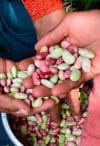
Few countries and political processes have been subject to such scrutiny, yet so generally misunderstood, as Venezuela and the Bolivarian Revolution. This is particularly true today, as the international media paints an image of absolute devastation in the country, wrought by failed policies and government mismanagement. One way to comprehend the complexities of what is happening in Venezuela today—missed entirely by the dominant, mainstream narrative—is by homing in on the dynamics around Venezuela’s most highly consumed staple foods. | more…
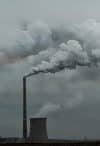
Human economies are complex biophysical systems. By exploring some fundamental concepts in physics, we can develop a better understanding of the ways that the energy-intensive activities of capitalism are changing humanity and the planet. | more…

Kohei Saito’s Karl Marx’s Ecosocialism: Capitalism, Nature, and the Unfinished Critique of Political Economy shows convincingly that Marx’s ideas about the interaction between humanity and nature did not arrive fully formed, but arose from his rigorous engagement with science and philosophy. His insights still offer unparalleled tools to understand capitalism’s current assault on the environment. | more…

To understand the present ecological crisis, it is necessary to dig much deeper into capitalism’s logic of expropriation, as first delineated by Marx during the Industrial Revolution. At the root of the problem is a spoliation of the natural environment—the expropriation of the earth itself. | more…

How Capital Extracts Value Beyond Wage Labor
An expanded Marxist understanding of capitalist exploitation is long overdue. There are many pathways of surplus extraction beyond the wage form, and understanding them is a task with profound implications for anticapitalist movements around the world. | more…
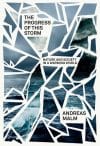
Ideas and theories can only play a limited part in tackling the climate crisis, but at least they should not act as obstacles to understanding and action. In his new book, Andreas Malm maps those obstacles and proposes a path through them. | more…
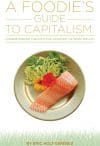
Capitalism drives our global food system. Everyone who wants to end hunger, who wants to eat good, clean, healthy food, needs to understand capitalism. This book will help do that. In his latest book, Eric Holt-Giménez takes on the social, environmental, and economic crises of the capitalist mode of food production. Drawing from classical and modern analyses, A Foodie’s Guide to Capitalism introduces the reader to the history of our food system and to the basics of capitalism. In straightforward prose, Holt-Giménez explains the political economics of why—even as local, organic, and gourmet food have spread around the world—billions go hungry in the midst of abundance; why obesity is a global epidemic; and why land-grabbing, global warming, and environmental pollution are increasing. | more…
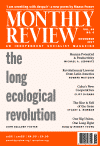
Over the last three decades, Monthly Review has stood out as a major source of ecosocialist analysis. This has been especially evident in recent months, with the publication by Monthly Review Press of three pathbreaking books: Kohei Saito, Karl Marx’s Ecosocialism: Capital, Nature, and the Unfinished Critique of Political Economy; Ian Angus, A Redder Shade of Green: Intersections of Science and Socialism; and Fred Magdoff and Chris Williams, Creating an Ecological Society: Toward a Revolutionary Transformation. | more…

From an ecological perspective, the Anthropocene marks the need for a more creative, constructive, and coevolutionary relation to the earth. In ecosocialist theory, this demands the reconstitution of society at large—over decades and centuries. However, given the threat to the earth as a place of human habitation this transformation requires immediate reversals in the regime of accumulation. | more…

Despite its grip on the scientific culture of affluent societies, the reign of the gene as the supposed “secret of life” is coming to an end. The more we learn about natural systems the clearer it becomes that genes are only one class of factors influencing phenotypic development and evolution. | more…
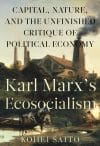
Karl Marx, author of what is perhaps the world’s most resounding and significant critique of bourgeois political economy, has frequently been described as a “Promethean.” According to critics, Marx held an inherent belief in the necessity of humans to dominate the natural world, in order to end material want and create a new world of fulfillment and abundance—a world where nature is mastered, not by anarchic capitalism, but by a planned socialist economy. Understandably, this perspective has come under sharp attack, not only from mainstream environmentalists but also from ecosocialists, many of whom reject Marx outright. | more…











